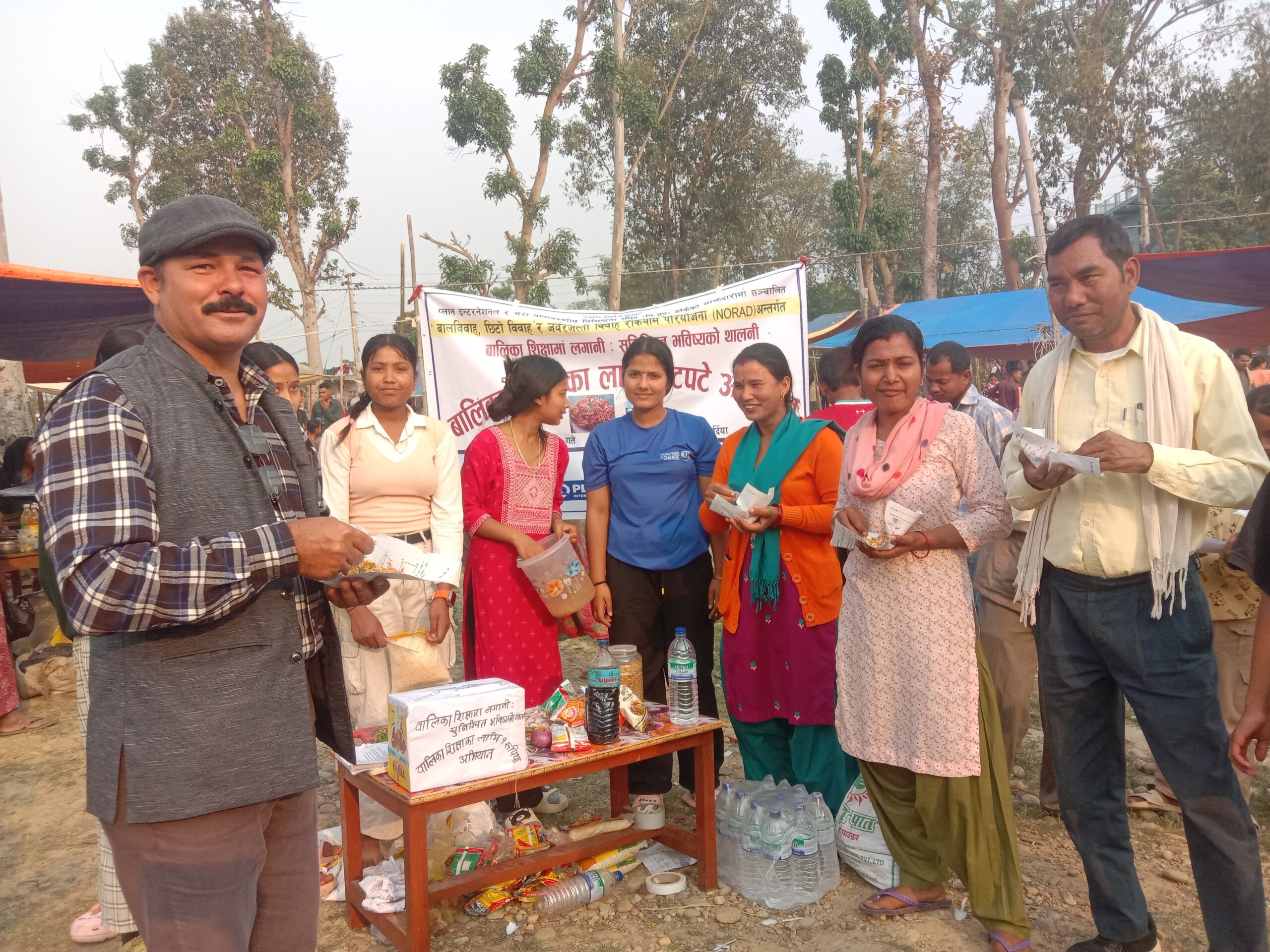Chandrakala leads campaign in support of girls’ education
The World Economic Forum estimates it will take 131 years to reach gender equality, that's why young girls like Chandrakala initiated a campaign ‘One Rupee for Girls’ Education’ to reduce the number of girls dropping out of school in her community. Together, we can beat the clock.

Chandrakala grew up in a remote village with her parents and 2 siblings. “We are farmers. We work for others to grow crops and don’t earn much. My father often travels to India for extra money to support our household,” she says.
Despite the challenges, Chandrakala is intent on supporting her own education. “I’m determined to keep learning. I feel sad when I have to ask my mother for my school fees as she gets very worried if she is not able to arrange money for my education. Every day I try to find ways to support my education and work towards my dreams.”
“Every day I try to find ways to support my education and work towards my dreams.”
Chandrakala
One of Chandrakala’s initiatives was to start her own street food stall. “I have a skill of making delicious chatpate (a popular Nepalese snack). I thought I could use this skill to open a chatpate stall and earn an income. I asked my mother to support me with NPR. 1500. Now I earn every month and have given the money back to her,” says Chandrakala proudly.
Becoming a role model and leading change
In rural Nepal, dropout rates among girls remain a major concern. Many families struggle to afford the cost of education. They often prioritise the education of boys over that of girls, resulting in girls being pulled out of school or college to help with household chores or work to support the family financially.
In April 2020, Chandrakala joined the Girls Get Equal campaign in her rural community. There, she learned how to become a change agent and pave her way to support the education of girls with disabilities and those who have been orphaned.
“I attended the Girls Get Equal campaign workshop. In the training, we were instructed to design a local campaign in collaboration with other young people from the same village,” says Chandrakala. “There were 7 girls from my village. We decided to create a campaign to raise funds for girls’ education by utilising my chatpate stall.”
“There were seven girls from my village. We decided to create a campaign to raise funds for girls’ education by utilising my chatpate stall.”
Chandrakala
Chandrakala and her friends presented their idea ‘One Rupee for Girls’ Education’ at the workshop. Lending her chatpate stall to the campaign, the girls set up the stall on the busiest road in their village and at the weekly local market asking her customers to donate Rs. 1 for girls’ education while also creating awareness about the importance of education for girls and young women.
“It is a sad reality. Girls do not get enough support from their families and communities to continue their education. Our traditional mindset prioritises girls’ domestic roles over their education,” says Chandrakala.
Chandrakala and her friends’ campaign was impressive and they received a small grant from the programme. On 8 March 2023, to mark International Women’s Day, Chandrakala and her team organised a large One Rupee for Girls’ Education’ stall at their local market, where hundreds of people gathered in the presence of the Ward Chairperson, Chandra Bahadur Shahi.
“As the Ward Chairperson, I wholeheartedly support Chandrakala and her friends’ One Rupee for Girls’ Education initiative. Their commitment to raising funds for girls’ education in our community is inspiring. Let’s all join hands to empower our girls and ensure they have equal opportunities to learn and thrive,” says Chandra Bahadur Shahi.
“I am happy that we are now recognised by everyone in our village. The community members also contributed one rupee each to support our campaign. So far, we have enough budget to provide educational materials such as photocopies, books, bags and pens to orphaned girls and those with disabilities,” shares Prakriti, a member of the One Rupee for Girls’ Education team.
Another member, Sapana, adds, “We are planning to distribute the educational materials we have bought in coordination with the district administration as they have also promised to join us in this campaign. We will choose a suitable day like International Day of the Girl and distribute it then.”
How we are supporting girls
Girls Get Equal is a campaign for girls’ power, voice and leadership. Its vision is a world where girls and young women are empowered to make decisions about their lives and shape the world around them.
For girls and young women to lead change, we must work together to engage those in power to ensure that girls have equal power to participate in all decisions that affect their lives, equal freedom to speak out in public and online without fear of violence and harassment, and equal representation with an end to the promotion of harmful gender stereotypes that hold girls back.


